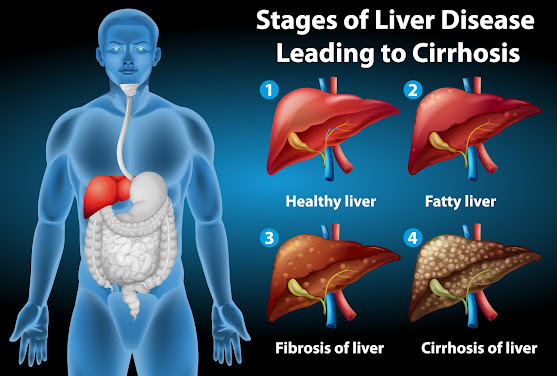Understanding the Importance of Diet in Liver Disorder Management
Liver disorders, including fatty liver disease, hepatitis, and cirrhosis, are serious health issues that affect millions of people worldwide. While medical treatment is essential, diet plays a crucial role in managing these conditions. Understanding the impact of diet on liver health is key to effectively managing liver disorders.
The Role of Diet in Liver Health
Nutrient Balance: A balanced diet is essential for liver health. Consuming a variety of nutrients, including proteins, carbohydrates, fats, vitamins, and minerals, helps maintain liver function and repair damaged cells.
Limiting Fat Intake: Excessive fat consumption can lead to fatty liver disease, a condition where fat accumulates in the liver. Limiting saturated fats, trans fats, and cholesterol can help prevent and manage this condition.
Choosing Healthy Fats: While limiting unhealthy fats, it's important to include healthy fats in your diet, such as those found in nuts, seeds, avocados, and fatty fish. These fats support liver function and reduce inflammation.
Avoiding Excessive Sugar: High sugar intake, especially from added sugars and sugary beverages, can contribute to fatty liver disease and other liver disorders. Opt for natural sugars from fruits and limit processed sugars.
Balanced Protein Intake: Protein is essential for liver function and repair. However, excessive protein intake can strain the liver. Choose lean protein sources like poultry, fish, beans, and legumes.
Fiber-Rich Foods: Fiber helps regulate digestion and reduce the risk of fatty liver disease. Include plenty of fruits, vegetables, whole grains, and legumes in your diet.
Tips for a Liver-Friendly Diet
Stay Hydrated: Drinking plenty of water helps flush toxins from the liver and supports overall liver function.
Limit Alcohol Consumption: Excessive alcohol consumption can damage the liver. If you have a liver disorder, it's important to avoid alcohol altogether.
Manage Portion Sizes: Overeating can strain the liver. Eat smaller, more frequent meals to support digestion and liver function.
Consult a Dietitian: For personalized dietary recommendations, consult with a dietitian who specializes in liver health.
understanding the importance of diet in managing liver disorder management in Indore is crucial for maintaining liver health and overall well-being. A balanced diet, rich in nutrients and low in unhealthy fats and sugars, plays a vital role in preventing and managing liver disorders such as fatty liver disease, hepatitis, and cirrhosis. By making informed dietary choices and consulting with a healthcare professional or dietitian, individuals can take proactive steps toward supporting their liver function and improving their quality of life.




Comments
Post a Comment